|
Do you ever stop to think how your everyday life has been shaped by people from the past? Well, if you play the guitar, brush your teeth, or eat dessert after a meal, you owe a debt of gratitude to a Muslim musician who lived twelve hundred years ago. Abul-Hasan, a commoner born in Baghdad around 789 A.D., had a gift for song that so pleased the ruling caliph he gave him the name “Ziryab,” meaning “Blackbird." Ziryab’s natural musical talent made other musicians jealous, however. So, when the caliph died in 813, they exiled the "Blackbird," sending him to wander the Islamic world for a decade. He performed wherever he went and picked up customs from the people he met. Ziryab eventually found his way to Al-Andalus (today’s Andalusia, Spain). Its ruler loved music. In fact, he valued musicians above all other professionals. He welcomed the refugee. He offered him asylum. Ziryab was an instant sensation. He introduced his instrument, the Baghdadi oud, to his new neighbors. Then, adding an extra string to his oud, he ignited the evolution of the Spanish guitar. He established the first-ever music conservatory in Córdoba, which gave rise to the genre of Andalusian classical music--musiqa al-ala—that is still a popular in Morocco today. But Ziryab's influence didn't stop with music. He transformed Córdoban society as well. He taught locals how to make deodorant and toothpaste. He instructed women in how to shape eyebrows, cut their hair into bangs, remove unwanted body hair. He inspired men to shorten their hair, as well, and to shave daily. And instead of piling his food onto platters, as was then the custom, Ziryab ate his meals atop a clean tablecloth and in three distinct courses: a soup, a main dish, and a dessert. So each time you sit down to a three-course dinner, strum your six-string guitar, brush your teeth, or tidy your hair, you are following in the footsteps of a Muslim musician who lived 1,200 years ago. 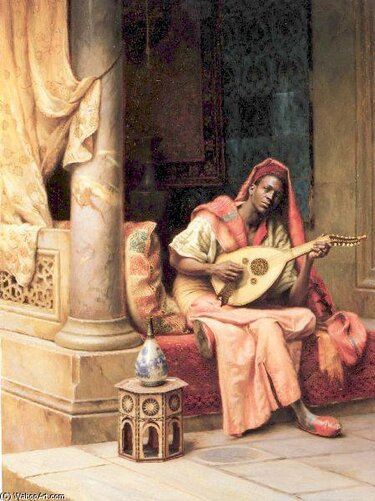 In music, Ziryab was the first to introduce the lute (Al-U'd) to Spain and Europe in general. He is credited with the addition of the fifth bass string to it which later paved the way for the development of the guitar. He also established the first conservatory in the world that included the teaching of harmony and composition.  Sarah Towle is an award-winning digital storyteller of immersive tales for educational tourism. With her latest project for secondary school students—the History Hero BLAST—she puts the Story back in History, bringing a fictional flair to factual tales of inspirational figures from around the world and throughout time. A blog and future podcast, the HHBLAST welcomes the participation of published and aspiring authors, including young writers. Click here to find out more Ziryab and other History Heroes and about how to bring the HHBLAST—and Sarah—to your school!
7 Comments
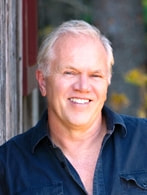 When I take a big bite into a hamburger, I am taking part in a food chain. When energy moves from one living organism (hamburger) to the next (me), scientists call this path or chain the Food Chain. Every living thing needs food. Food provides energy for plants and animals to live. Food chains begin with plants using sunlight, water and nutrients to make energy in a process called photosynthesis. There are lots of different kinds of food chains— some simple, some complex. An example of a simple food chain is when a rabbit eats grass and then a fox eats the rabbit. I think food chains are so interesting, I’ve written some poems about them. A Shark is the Sun Shark eats tuna, Tuna eats mackerel, Mackerel eats sardine, Sardine eats zooplankton, Zooplankton eats phytoplankton, Phytoplankton eats sun. So...shark eats sun. In every food chain there are producers, consumers and decomposers. Plants make their own food so they are producers. Animals are consumers because they consume plants or animals. Decomposers have the final say as they break down and decompose plants or animals and release nutrients back to the earth. Animals can be herbivores (plant eater), carnivores (meat eater) or omnivores (plant and meat eater). What are you? Why Can’t I Be On The Top? I don’t like the bottom, I want to be at the top. I’m tired of being crushed and stomped and chewed into slop. Why can’t I be the tiger with claws as sharp as shears, With a roar as loud as thunder To threaten trembling ears? Who designed this food chain? Is there a chance I can opt out? At least I’m not a plankton Floating all about. I hope you are happy with your place in the food chain. If not, you might want to sing along with the Food Chain Blues. Food Chain Blues Mama said be careful, It’s a risky world outside, Dangers lurking everywhere, Hardly a place to hide. She said some of us get eaten, And some of us survive. Count yourself quite lucky, If you make it out alive. We’re stuck in this cruel cycle, Nature’s red teeth and claws. You wanna do your best, To stay clear of someone’s jaws. I got the food chain blues I got the food chain blues Someone’s gonna eat me. I got the food chain blues! 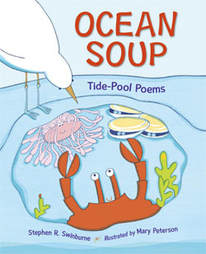 For more of Steve's poems about creatures check out Ocean Soup. It even has its own web page here. Steve Swinburne is a member of iNK's Authors on Call and is available for classroom programs through Field Trip Zoom, a terrific technology that requires only a computer, wifi, and a webcam. Click here to find out more. MLA 8 Citation
Swinburne, Stephen. "Food Chain Poems." Nonfiction Minute, iNK Think Tank, 8 Mar. 2018, www.nonfictionminute.org/the-nonfiction-minute/Food-Chain-Poems. 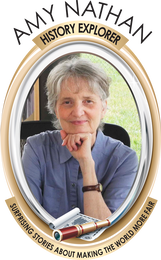 The song “We Shall Overcome” was an important part of the civil rights movement of the 1960's. It gave hope and courage to thousands of blacks and whites who protested peacefully against unfair treatment of African Americans. The song is easy to sing, but its words carry a powerful message. Here’s its main verse: We shall overcome, We shall overcome, We shall overcome some day, Oh, deep in my heart I do believe We shall overcome some day. Often protestors faced hostile crowds, were arrested, or even beaten up when they took part in nonviolent demonstrations that called for all Americans—no matter their skin color—to have the same right to vote and be treated fairly in restaurants, stores, businesses, schools, buses, trains—and even amusement parks. Reverend Dr. Martin Luther King, Jr., a main leader of the civil rights movement, urged demonstrators not to fight back, no matter how badly they were treated. This song helped them do that. Holding hands and joining their voices in “We Shall Overcome” during demonstrations—or in jail—helped them feel they weren’t alone and that despite the danger, their efforts would lead to a better America. The protests did indeed lead to new laws being passed. The 1964 Civil Rights Law makes it illegal for any business that serves the public to discriminate against people because of race, religion, gender, or national origin. The 1965 Voting Rights Law outlaws rules that make it hard for blacks to vote. News about these nonviolent protestors—and their song—spread around the world. Before long, people protesting for fair treatment in other countries began singing “We Shall Overcome” in their own languages. It has been sung by demonstrators in such varied countries as India, Czechoslovakia, Romania, China, and Britain. While I was doing research for a book on civil rights, a man told me how the song helped him when he was surrounded by a hostile mob that hurled insults (and some rocks) during a 1963 demonstration at an amusement park that refused to let in blacks. When police arrived to arrest the protestors (not the stone thrower), the demonstrators held hands and sang the song as they walked through the mob to the police van. Their voices were shaky as they sang the verse “We are not afraid,” because they were very afraid, but the song gave them the courage to keep going. Click here for source notes on this article. 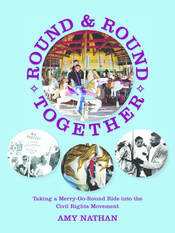 Amy Nathan is the author of Round and Round Together: Taking a Merry-Go-Round into the Civil Rights Movement, which tells the tale of the nearly ten years of protests that were needed to finally end segregation at an amusement park, placing the story of the park—and its merry-go-round—within the context of the civil rights movement as a whole. For more information on the book, click here. MLA 8 Citation
Nathan, Amy. "'We Shall Overcome': The Power of a Song." Nonfiction Minute, iNK Think Tank, 23 Feb. 2018, www.nonfictionminute.org/the-nonfiction-minute/ we-shal-overcome-the-power-of-a-song. 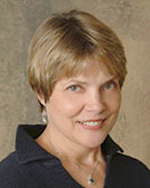
One of the joys of research is uncovering the unexpected. Most recently this happened to me when I was writing Charles Dickens and the Street Children of London. Dickens was a patron of the London Foundling Hospital, a charitable home for orphans founded in 1741. (Foundlings were children whose parents were unknown, and hospital meant shelter back then.)
Researching the Foundling, I learned that a century before Dickens, German composer George Frederic Handel was one of its greatest benefactors. I thought this must be a mistake since he was German. Curious, I took a side journey into Handel’s life to find out. Brimming with musical talent, Handel moved to London at age 26 to find work and quickly became a popular composer and performer. He decided to stay, eventually becoming a British citizen. Londoners readily recognized him, for he was a great bear of a man who wore stylish clothes and an enormous wig. He spoke with a thick German accent, and when angry, his words tumbled together in German, Italian, and English. He never married or had children, but he had a big heart and readily assisted the needy and destitute, especially children. It’s been said that no other composer contributed so much to the relief of human suffering. He often helped charities by donating all proceeds from a concert. In 1749 when he learned that the Foundling did not have funds for its proposed chapel, he offered a concert to introduce his newest composition, Messiah. The packed audience was enthralled. A second concert quickly sold out, and the chapel was completed. Handel became a member of the Foundling’s Board of Governors and continued his financial assistance by personally directing Messiah in the chapel at least once a year, always to overflow crowds. When the king attended a performance, he stood for the “Hallelujah Chorus”--and audiences have been standing ever since. Because Handel knew people would pay to see it, he willed the Foundling an original copy of Messiah. I listen to Handel’s compositions differently now. It’s no longer mere music from the past; instead, it feels alive, created by a fascinating man with a charitable heart who helped provide for orphans. I attend Messiah whenever I can, and when we all stand for the “Hallelujah Chorus,” I smile to myself, feeling a strong connection to history, for I know exactly why we are doing it. 
As much as Andrea Warren loves writing, she also loves research. Getting distracted can pay off, because she's now writing a book on a subject she discovered while researching another book. To learn more about Handel and how he not only helped the poor but also inspired Charles Dickens, take a look at Warren's book "Charles Dickens and the Street Children of London." You'll learn more about it and about her other books at www.AndreaWarren.com . Andrea is also a member of Authors on Call. Bring her into your classroom via interactive video conferencing. Here’s where you can learn more about her and her programs.
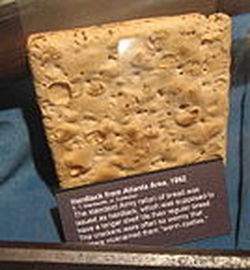 During the Civil War, soldiers loved to eat and to sing. One of their favorite songs was about food they hated: “Hardtack, Come Again No More!” It was a parody of composer Stephen Foster’s popular 1854 tune “Hard Times Come Again No More.” Hardtack was a thick cracker that formed the men's basic ration. Nearly every soldier received nine or ten every day. Hardtack lived up to the “hard” part of its name. Soldiers often had trouble crunching the rock-like crackers and gave them nicknames such as “teeth dullers,” “sheet-iron crackers,” “jawbreakers,” and so on. According to a popular joke, a soldier bit into a piece of hardtack. “I found something soft!” he told his comrades. “What is it?” they asked. “A nail!” he replied. To make hardtack easier to eat, soldiers often bashed the crackers with the butt end of their rifles. They scooped up the crumbs and mixed them with bacon grease and salt pork to make a kind of mush called skillygalee. Hardtack had another nickname: “worm castles.” Worms frequently burrowed into the crackers. To get rid of those little wrigglers, soldiers dunked the crackers in hot coffee. The hardtack fell apart and the worms floated to the surface. Sometimes the men had contests to see whose hardtack had the most worms. Reportedly, the record was 32! Not everyone threw the little creatures away, though. One soldier explained that “They eat better than they look, and are so much clear gain in the way of fresh meat.” If hardtack had all these problems, why was it such an important part of the soldiers’ daily diet? First, it was easy and inexpensive to make. Every day 3 or 4 million crackers popped out of bakers’ ovens and were shipped to the armies in the field. Second, hardtack hardly ever spoiled. In 1898, U.S. Navy sailors in the Spanish-American War chowed down on hardtack baked more than 30 years earlier during the Civil War. Third, the crackers didn’t weigh very much. Soldiers could carry enough hardtack in their backpacks to eat for several days. Soldiers joked that they could stitch together crackers to make a bulletproof vest, though it’s doubtful that anyone actually did. Maybe they should have. In 2010, college students performed an experiment by firing pistol shots into chunks of hardtack. They were astonished to find that the crackers stopped the bullets! © Jim Whiting, 2014  Jim Whiting has written 250 nonfiction books. He's known as Washington State's most prolific children's book author. MLA 8 Citation Whiting, Jim. "Hard Crackers in Hard Times." Nonfiction Minute, iNK Think Tank, 12 Sept. 2017, www.nonfictionminute.org/the-nonfiction-minute/hard-crackers-in-hard-times. |
*NEWS
|
For Vicki Cobb's BLOG (nonfiction book reviews, info on education, more), click here: Vicki's Blog
The NCSS-CBC Notable Social Studies Committee is pleased to inform you
that 30 People Who Changed the World has been selected for Notable Social Studies Trade Books for Young People 2018, a cooperative project of the National Council for the Social Studies (NCSS) & the Children’s Book Council
Categories
All
Abolitionists
Adams Janus
Adaptation
Adaptations
Adkins Jan
Advertising
Aerodynamics
Africa
African American History
African Americans
Africa West
Agriculture
Aircraft
Air Pilots
Air Pressure
Air Travel
Albee Sarah
Alchemy
Alligators
Allusion
American History
American Icons
Amphibians
Amundsen Roald
Anatomy
Ancient
Ancient Cultures
Anderson Marian 1897-1993
Animal Behavior
Animal Experimentation
Animal Intelligence
Animals
Animation
Antarctica
Ants
Apache Indians
Apes
April Fool's Day
Architecture
Argument
Arithmetic
Art
Art Deco
Artists
Arts
Asia
Astronauts
Astronomy
Athletes
Atomic Theory
Audubon Societies
Authors
Autobiography
Automobiles
Aviation
Awards
Bacteria
Baseball
Battuta Ibn
Bears
Beatles
Beavers
Bees
Biodegradation
Biography
Biology
Biomes
Biomimicry
Biplanes
Birds
Black Death
Black History
Blindness
Blizzards
Bombs
Bonaparte Napoleon
Boone Daniel
Botany
Brazil
Bridges
Brill Marlene Targ
Brooklyn Bridge
Brown John
Buffaloes
Building Materials
Butterflies
Caesar
Caesar Julius
Caissons
Calculus
Calendars
Cannibal
Capitals
Caravaggio
Carbon Dioxide
Carnivores
Carson Mary Kay
Cartoons & Comics
Carving (Decorative Arts)
Cascade Range
Castaldo Nancy
Castles
Castrovilla Selene
Cathedrals
Cats
Caves
Celts
Cemeteries
Chemistry
Children's Authors
Child Welfare
China
Choctaw Indians
Christmas
Chronometers
Cicadas
Cinco De Mayo
Ciphers
Circle
Citizenship
Civil Rights
Civil Rights Movements
Civil War
Civil War - US
Climate
Climate Change
Clocks And Watches
Clouds
Cobb Vicki
COBOL (Computer Language)
Code And Cipher Stories
Collard III Sneed B.
Collectors And Collecting
Color
Commerce
Communication
Competition
Compilers
Composers
Computers
Congressional Gold Medal
Consitution
Contests
Contraltos
Coolidge Calvin
Cooling
Corms
Corn
Counterfeiters
Covid-19
Crocodiles
Cryptography
Culture
Darwin Charles
Declaration Of Independence
Decomposition
Decompression Sickness
Deep-sea Animals
Deer
De Medici Catherine
Design
Detectives
Dickens Charles
Disasters
Discrimination
Diseases
Disney Walt
DNA
Dogs
Dollar
Dolphins
Douglass Frederick 1818-1895
Droughts
Dr. Suess
Dunphy Madeleine
Ear
Earth
Earthquakes
Ecology
Economics
Ecosystem
Edison Thomas A
Education
Egypt
Eiffel-gustave-18321923
Eiffel-tower
Einstein-albert
Elephants
Elk
Emancipationproclamation
Endangered Species
Endangered-species
Energy
Engineering
England
Englishlanguage-arts
Entomology
Environmental-protection
Environmental-science
Equinox
Erie-canal
Etymology
Europe
European-history
Evolution
Experiments
Explorers
Explosions
Exports
Extinction
Extinction-biology
Eye
Fairs
Fawkes-guy
Federalgovernment
Film
Fires
Fishes
Flight
Floods
Flowers
Flute
Food
Food-chains
Foodpreservation
Foodsupply
Food-supply
Football
Forceandenergy
Force-and-energy
Forensicscienceandmedicine
Forensic Science And Medicine
Fossils
Foundlings
France
Francoprussian-war
Freedom
Freedomofspeech
French-revolution
Friction
Frogs
Frontier
Frontier-and-pioneer-life
Frozenfoods
Fugitiveslaves
Fultonrobert
Galapagos-islands
Galleys
Gametheory
Gaudi-antoni-18521926
Gender
Generals
Genes
Genetics
Geography
Geology
Geometry
Geysers
Ghosts
Giraffe
Glaciers
Glaucoma
Gliders-aeronautics
Global-warming
Gods-goddesses
Gold-mines-and-mining
Government
Grant-ulysses-s
Grasshoppers
Gravity
Great-britain
Great-depression
Greece
Greek-letters
Greenberg Jan
Hair
Halloween
Handel-george-frederic
Harness Cheryl
Harrison-john-16931776
Health-wellness
Hearing
Hearing-aids
Hearst-william-randolph
Henry-iv-king-of-england
Herbivores
Hip Hop
History
History-19th-century
History-france
History-world
Hitler-adolph
Hoaxes
Holidays
Hollihan Kerrie Logan
Homestead-law
Hopper-grace
Horses
Hot Air Balloons
Hot-air-balloons
Housing
Huguenots
Human Body
Hurricanes
Ice
Icebergs
Illustration
Imagery
Imhotep
Imperialism
Indian-code-talkers
Indonesia
Industrialization
Industrial-revolution
Inquisition
Insects
Insulation
Intelligence
Interstatecommerce
Interviewing
Inventions
Inventors
Irrational-numbers
Irrigation
Islands
Jacksonandrew
Jazz
Jeffersonthomas
Jefferson-thomas
Jemisonmae
Jenkins-steve
Jet-stream
Johnsonlyndonb
Jokes
Journalism
Keeling-charles-d
Kennedyjohnf
Kenya
Kidnapping
Kingmartinlutherjr19291968
Kingmartinlutherjr19291968d6528702d6
Kings-and-rulers
Kings Queens
Kings-queens
Koala
Labor
Labor Policy
Lafayette Marie Joseph Paul Yves Roch Gilbert Du Motier Marquis De 17571834
Landscapes
Languages-and-culture
Law-enforcement
Layfayette
Levers
Levinson Cynthia
Lewis And Clark Expedition (1804-1806)
Lewis Edmonia
Liberty
Lift (Aerodynamics)
Light
Lindbergh Charles
Liszt Franz
Literary Devices
Literature
Lizards
Longitude
Louis XIV King Of France
Lumber
Lunar Calendar
Lynching
Macaws
Madison-dolley
Madison-james
Madison-james
Mammals
Maneta-norman
Maneta-norman
Marathon-greece
Marine-biology
Marine-biology
Marines
Marsupials
Martial-arts
Marx-trish
Mass
Massachusetts-maritime-academy
Mass-media
Mastodons
Mathematics
May-day
Mcclafferty-carla-killough
Mcclafferty-carla-killough
Mckinley-william
Measurement
Mechanics
Media-literacy
Media-literacy
Medicine
Memoir
Memorial-day
Metaphor
Meteorology
Mexico
Mickey-mouse
Microscopy
Middle-west
Migration
Military
Miners
Mississippi
Molasses
Monarchy
Monsters
Montgomery
Montgomery-bus-boycott-19551956
Montgomery-heather-l
Monuments
Moon
Moran-thomas
Morsecode
Morsesamuel
Moss-marissa
Moss-marissa
Motion
Motion-pictures
Mummies
Munro-roxie
Munro-roxie
Musclestrength
Museums
Music
Muslims
Mythologygreek
Nanofibers
Nanotechnology
Nathan-amy
Nathan-amy
Nationalfootballleague
Nationalparksandreserves
Nativeamericans
Native-americans
Native-americans
Naturalhistory
Naturalists
Nature
Nauticalcharts
Nauticalinstruments
Navajoindians
Navigation
Navy
Ncaafootball
Nervoussystem
Newdeal19331939
Newman-aline
Newman-aline
Newton-isaac
New-york-city
Nobelprizewinners
Nomads
Nonfictionnarrative
Nutrition
Nylon
Nymphs-insects
Oaths Of Office
Occupations
Ocean
Ocean-liners
Olympics
Omnivores
Optics
Origami
Origin
Orphans
Ottomanempire
Painters
Painting
Paleontology
Pandemic
Paper-airplanes
Parksrosa19132005
Parrots
Passiveresistance
Patent Dorothy Hinshaw
Peerreview
Penguins
Persistence
Personalnarrative
Personification
Pets
Photography
Physics
Pi
Pigeons
Pilots
Pinkertonallan
Pirates
Plague
Plains
Plainsindians
Planets
Plantbreeding
Plants
Plastics
Poaching
Poetry
Poisons
Poland
Police
Political-parties
Pollen
Pollution
Polo-marco
Populism
Portraits
Predation
Predators
Presidentialmedaloffreedom
Presidents
Prey
Prey-predators
Prey-predators
Prime-meridian
Pringle Laurence
Prohibition
Proteins
Protestandsocialmovements
Protestants
Protestsongs
Punishment
Pyramids
Questioning
Radio
Railroad
Rainforests
Rappaport-doreen
Ratio
Reading
Realism
Recipes
Recycling
Refrigerators
Reich-susanna
Religion
Renaissance
Reproduction
Reptiles
Reservoirs
Rheumatoidarthritis
Rhythm-and-blues-music
Rice
Rivers
Roaringtwenties
Roosevelteleanor
Rooseveltfranklind
Roosevelt-franklin-d
Roosevelt-theodore
Running
Russia
Safety
Sanitation
Schwartz David M
Science
Scientificmethod
Scientists
Scottrobert
Sculpture
Sculpturegardens
Sea-level
Seals
Seals-animals
Secretariesofstate
Secretservice
Seeds
Segregation
Segregationineducation
Sensessensation
September11terroristattacks2001
Seuss
Sextant
Shackletonernest
Shawneeindians
Ships
Shortstories
Silkworms
Simple-machines
Singers
Siy Alexandra
Slavery
Smuggling
Snakes
Socialchange
Social-change
Socialjustice
Social-justice
Socialstudies
Social-studies
Social-studies
Sodhouses
Solarsystem
Sound
Southeast-asia
Soybean
Space Travelers
Spain
Speech
Speed
Spiders
Spies
Spiritualssongs
Sports
Sports-history
Sports-science
Spring
Squirrels
Statue-of-liberty
STEM
Storms
Strategy
Sugar
Sumatra
Summer
Superbowl
Surgery
Survival
Swanson-jennifer
Swinburne Stephen R.
Synthetic-drugs
Taiwan
Tardigrada
Tasmania
Tasmanian Devil
Tasmanian-devil
Technology
Tecumsehshawneechief
Telegraph-wireless
Temperature
Tennis
Terrorism
Thomas Peggy
Thompson Laurie Ann
Time
Titanic
Tombs
Tortoises
Towle Sarah
Transcontinental-flights
Transportation
Travel
Trees
Trung Sisters Rebellion
Tundra
Turnips
Turtles
Typhoons
Underground Railroad
Us-environmental-protection-agency
Us History
Us-history
Ushistoryrevolution
Us History Revolution
Us-history-war-of-1812
Us Presidents
Ussupremecourtlandmarkcases
Vacations
Vaccines
Vangoghvincent
Vegetables
Venom
Vietnam
Viruses
Visual-literacy
Volcanoes
Voting-rghts
War
Warne-kate
Warren Andrea
Washington-dc
Washington George
Water
Water-currents
Wax-figures
Weapons
Weather
Weatherford Carole Boston
Whiting Jim
Wildfires
Winds
Windsor-castle
Wolves
Woman In History
Women
Women Airforce Service Pilots
Women-airforce-service-pilots
Womeninhistory
Women In History
Women-in-science
Women's History
Womens-roles-through-history
Wonder
Woodson-carter-godwin-18751950
World-war-i
World War Ii
World-war-ii
Wright Brothers
Writing
Writing-skills
Wwi
Xrays
Yellowstone-national-park
Zaunders Bo
ArchivesMarch 2021
February 2021
January 2021
December 2020
November 2020
October 2020
September 2020
June 2020
May 2020
April 2020
March 2020
February 2020
January 2020
December 2019
October 2019
September 2019
August 2019
July 2019
May 2019
April 2019
March 2019
February 2019
January 2019
December 2018
November 2018
September 2018
June 2018
May 2018
April 2018
March 2018
February 2018
January 2018
December 2017
November 2017
October 2017
September 2017
March 2017
The NONFICTION MINUTE, Authors on Call, and. the iNK Books & Media Store are divisions of iNK THINK TANK INC.
a 501 (c) (3) nonprofit corporation. To return to the iNK Think Tank landing page click the icon or the link below. :
http://inkthinktank.org/
For more information or support, contact thoughts@inkthinktank.org
For Privacy Policy, go to
Privacy Policy
© COPYRIGHT the Nonfiction Minute 2020.
ALL RIGHTS RESERVED.
This site uses cookies to personalize your experience, analyze site usage, and offer tailored promotions. www.youronlinechoices.eu
Remind me later
Archives
March 2023
February 2023
January 2023
December 2022
November 2022
October 2022
September 2022
June 2022
May 2022
April 2022
March 2022
February 2022
January 2022
December 2021
November 2021
September 2021
April 2021
March 2021
February 2021
November 2020
October 2020
September 2020
June 2020
May 2020
April 2020
March 2020
February 2020
January 2020
October 2019
August 2019
July 2019
May 2019
April 2019
December 2018
September 2018
June 2018
May 2018
March 2018
February 2018
January 2018
December 2017
November 2017
October 2017
September 2017
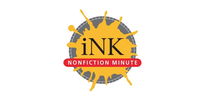


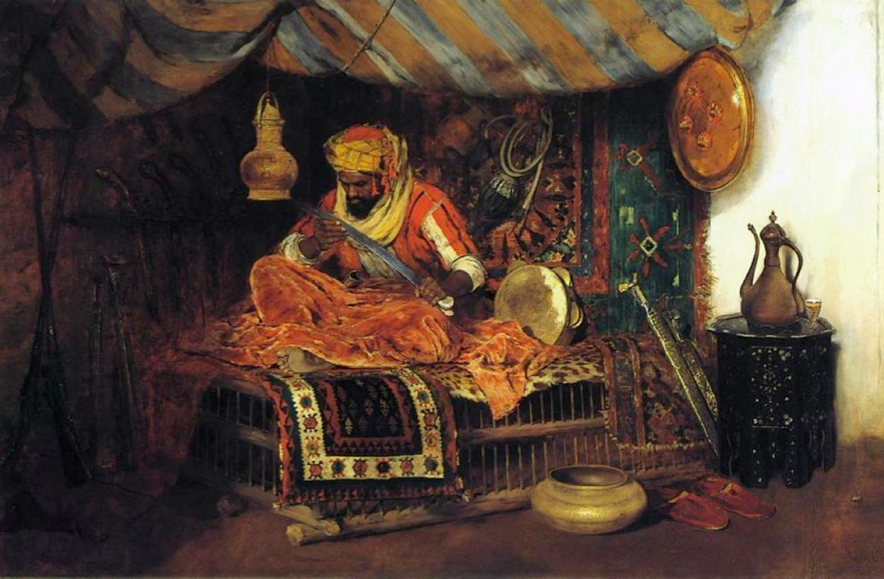

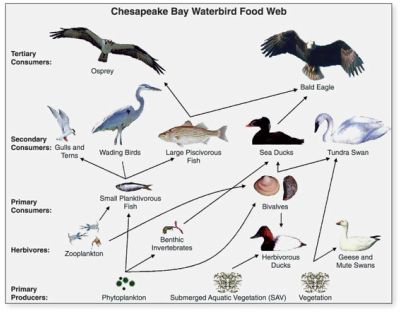
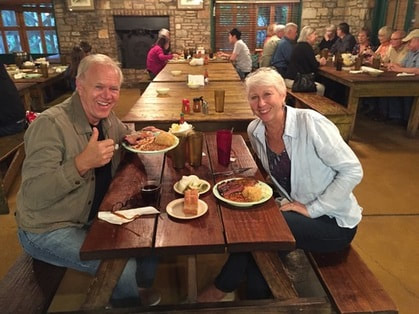


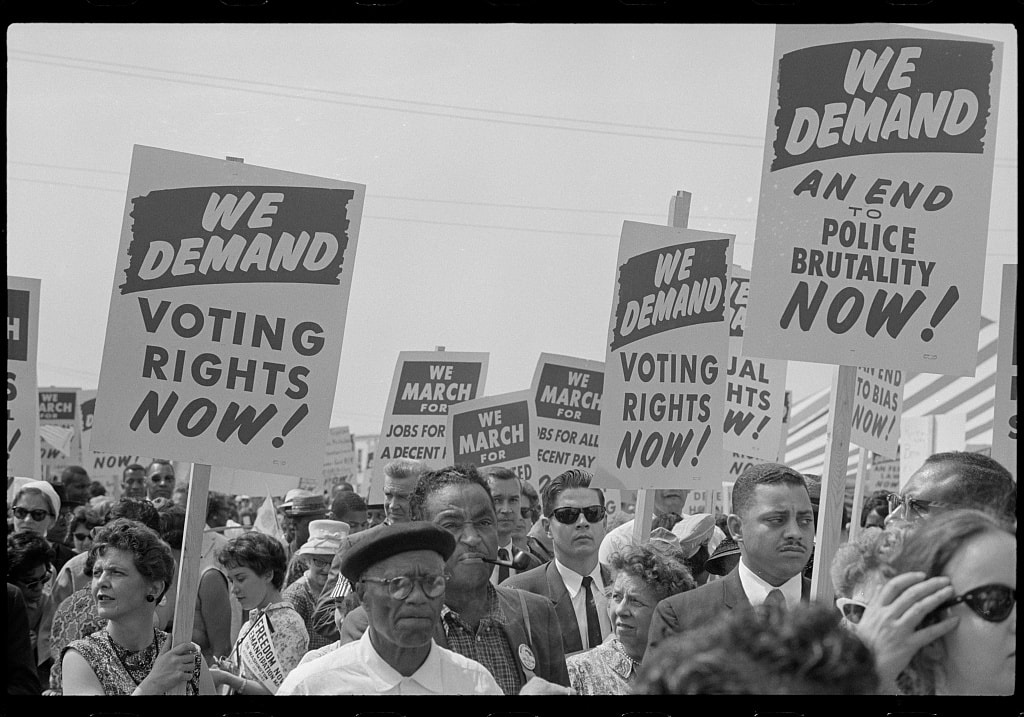


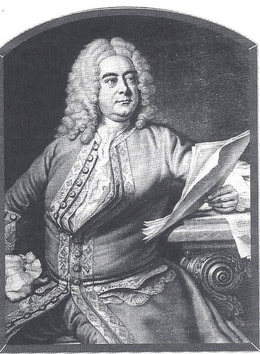
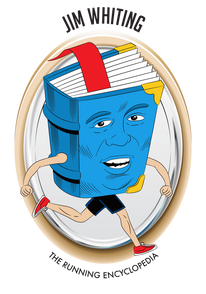


 RSS Feed
RSS Feed
